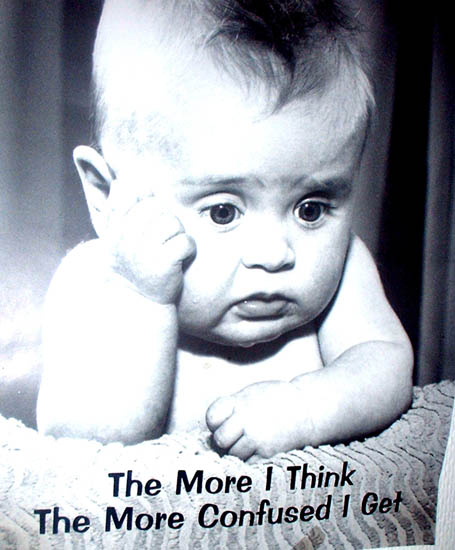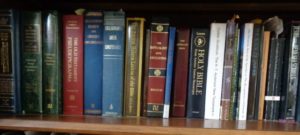 Yom haKippurim is on the 10th day of the 7th month. Lev 23:32 says that the Shabbat begins on the even of the 9th and continues to the even of the 10th. Many or most seem to interpret this as the end of the 9th to the end of the 10th. This is well and good but I thought the even begins the days. So the even of the 9th would be the start of day 9 and the even of the 10th would start the 10th. It seems to me if the day does start at the even, then this Shabbat should start at the even of the 10th and end at the even of the 11th. It doesn’t say this. It seems that even to even people are saying that the same moment in time is the previous day and the next day AT THE SAME TIME. ??? A little help please!
Yom haKippurim is on the 10th day of the 7th month. Lev 23:32 says that the Shabbat begins on the even of the 9th and continues to the even of the 10th. Many or most seem to interpret this as the end of the 9th to the end of the 10th. This is well and good but I thought the even begins the days. So the even of the 9th would be the start of day 9 and the even of the 10th would start the 10th. It seems to me if the day does start at the even, then this Shabbat should start at the even of the 10th and end at the even of the 11th. It doesn’t say this. It seems that even to even people are saying that the same moment in time is the previous day and the next day AT THE SAME TIME. ??? A little help please!
Search Blog
Study Your Bible with Me

Blog Categories
-
Recent Blog Posts
Recent Blog Comments
- The Book of Revelation: Future, Present or Past? | Messyanic on When Shall These Things Be?
- The Creator is God vs God is the Creator | Messyanic on What is the Will of God?
- What is the Will of God? | Messyanic on The Creator is God vs God is the Creator
- The Creator is God vs God is the Creator | Messyanic on The Bible is Not the Inerrant Word of God
- Eliyahu on Let Them Be…For Seasons
Meta

I believe most folks who hold to the even-to-even reckoning of the day don’t even realize the inconsistency here. We naturally understand that evening comes at the end of a day, so when one reads this passage (along with the reference to Passover “at the twilight of the fourteenth” in 23:5), we instinctly read “the evening of the ninth” to be at the end of the 9th daylight. And logically, given the fact that verse 27 clearly states the Day of Atonement is on the 10th day, it makes sense to identify the “evening of the ninth…until the following evening” to be wrapped around the 10th day.
However, when one attempts to defend the even-to-even reckoning of a day, most run to Leviticus 23:32 to use as their main evidence. The problem with this is that, they’re using this passage to say two opposing things:
1. “evening of the 9th” = the end of the day -and- “the following evening” = the end of the next day
2. “evening of the 9th” = the beginning of the day -and- “the following evening” = the end of the day
Do you see the discrepancy? Read/reckon it one way and it says “end of day” to “end of day” (this is how the actual Day of Atonement is observed) but then read/reckon it the other way and it says “beginning of day” to “end of day”. You can’t have it both ways.
If you apply the “beginning of day” to “end of day” logic to your observance of the holy day, then you would either be a day early observing it on the 9th or you would be saying the Day of Atonement stretches over both the 9th and 10th days.
I think if folks, who claim the even-to-even reckoning of a day, would take the time to think this passage through, they would see the discrepancy for themselves.
What if I do not want to reckon anything but rather breeze right over this while rolling my eyes at the absurdity of it? I prefer to hold my position and not even consider that I hold a single bit of error in this matter.
Reprove not a scorner, lest he hate you: rebuke a wise man, and he will love you.
Lev 23:27 and Number 29:7 clearly state the day of atonement is only the 10th day, Now when you look at Lev 23;32 it says to begin on 9th even which is actually the END of the ninth day to begin the 10th day WHY OR HOW because every biblical day has TWO EVENS an EVEN to begin the day and an EVEN to end the day. so the CONTEXT of verse 32 is the ending even of the 9th.
ALL Biblical days are even to even, or between the evens, or sunset to sunset, as per Genesis 1 each creation day ends with EVENING (FIRST) day (Second). Just as Messiah had 14th Passover meal at even and died later that 14th Passover daylight and rose on FIRSTFRUITS LEV 23:11 on the morrow AFTER Sabbath on the FIRST DAY MARK 16:9 AT NIGHT when the angels arrived at dark just before sunrise at beginning of dawn as the women came 1st day YET DARK John 20 before he walked later that day on the road to Emmaus with Cleopas.
When we let the Bible define itself in addition to learning the definitions of the Hebrew words used in Genesis 1, taking one verse at a time sequentially, we have a foundation for understanding the terms: day, night, evening and morning. And this understanding is necessary in order to grasp the use of these terms throughout the rest of the Bible.
I did an in-depth study on this subject several years ago and shared my notes here: http://messyanic.com/when-a-day-begins.pdf
I strongly recommend taking a second look at what the Bible really says on this subject (“day”, “night”, “evening” and “morning”) starting from the beginning of Genesis (and using other translations in addition to the KJV because any one translation can be misleading). Also, pay attention to what the words are and their meaning in the languages from which the English Bibles were translated because many things have gotten lost in the various translations.